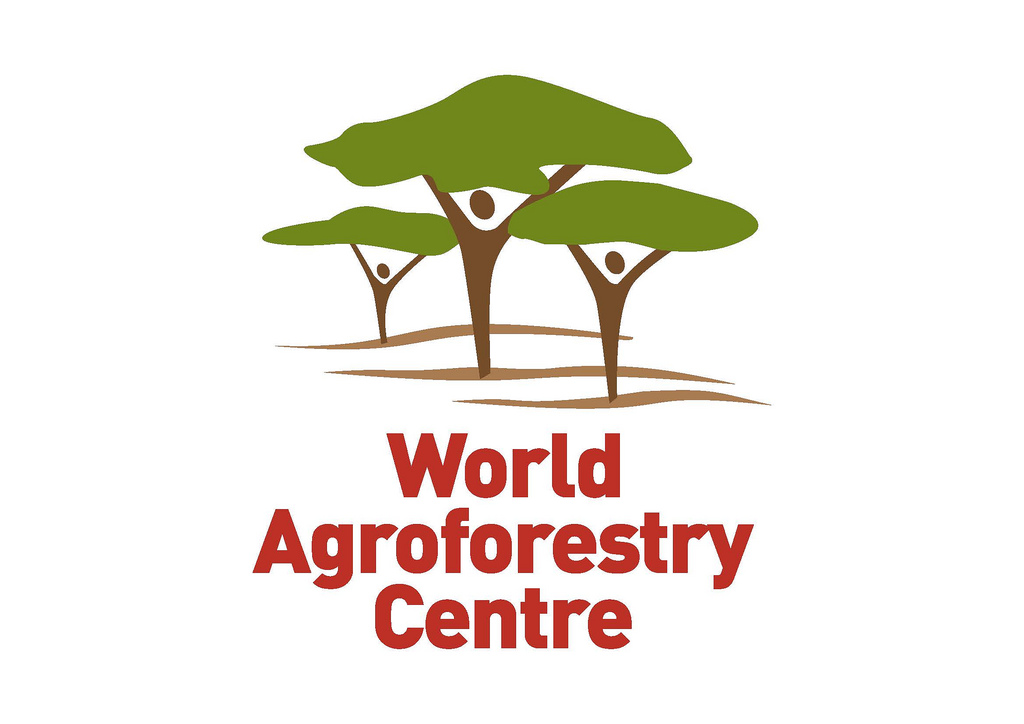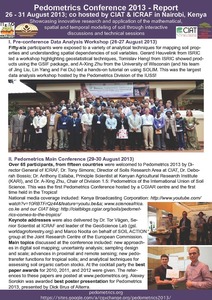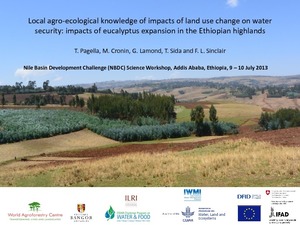Location
The World Agroforestry Centre (ICRAF) is a CGIAR Consortium Research Centre. ICRAF’s headquarters are in Nairobi, Kenya, with six regional offices located in Cameroon, China, India, Indonesia, Kenya and Peru.
The Centre’s vision is a rural transformation throughout the tropics as smallholder households increase their use of trees in agricultural landscapes to improve their food security, nutrition security, income, health, shelter, social cohesion, energy resources and environmental sustainability.
ICRAF's mission is to generate science-based knowledge about the diverse benefits - both direct and indirect - of agroforestry, or trees in farming systems and landscapes, and to disseminate this knowledge to develop policy options and promote policies and practices that improve livelihoods and benefit the environment.
The World Agroforestry Centre is guided by the broad development challenges pursued by the CGIAR. These include poverty alleviation that entails enhanced food security and health, improved productivity with lower environmental and social costs, and resilience in the face of climate change and other external shocks.
ICRAF's work also addresses many of the issues being tackled by the Sustainable Development Goals (SDGs) that aim to eradicate hunger, reduce poverty, provide affordable and clean energy, protect life on land and combat climate change.
Members:
Resources
Displaying 96 - 100 of 146An integrated agro-ecosystem and livelihood systems approach for the poor and vulnerable in dry areas
More than 400 million people in the developing world depend on dryland agriculture for their livelihoods. Dryland agriculture involves a complex combination of productive components: staple crops, vegetables, livestock, trees and fish interacting principally with rangeland, cultivated areas and watercourses. Managing risk and enhancing productivity through diversification and sustainable intensification is critical to securing and improving rural livelihoods.
Sustainable agricultural intensification and its role on the climate resilient green economy initiative in Ethiopia: Report of the 3rd national platform meeting on land and water management in Ethiopia, Addis Ababa, 23?24 July 2012
Payments for ecosystem services schemes: project-level insights on benefits for ecosystems and the rural poor.
Payments for ecosystem services (PES) provide a market based instrument to motivate changes in land use that degrade ecosystem services. This investigation sought to better understand how effective PES schemes are in meeting the goals of safeguarding ecosystem services, while also benefitting local livelihoods and ensuring pro-poor outcomes.Based on an internet survey of 36 PES projects, including water-bio-diversity and carbon- leading attributes, and analysis of a sub-set of nine case studies, we explore a range of insights and commonalities between projects.






